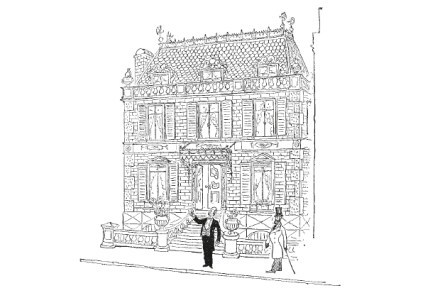Why I’d never wear red corduroys
The Spectator Book of Wit, Humour and Mischief (Little, Brown) is just out, launched at a party at the paper’s offices where — wittily, humorously and mischievously — no copies were available. I have now procured one and can report that I laughed a lot when reading it. In his introduction, the book’s editor, Marcus Berkmann, describes how I appointed him the magazine’s one and only pop critic, a post he was to hold with distinction for 27 years. He alleges that when we first met I was sitting in The Spectator’s then offices in Doughty Street ‘wearing the brightest red corduroys I had ever seen’. ‘If a pair of










